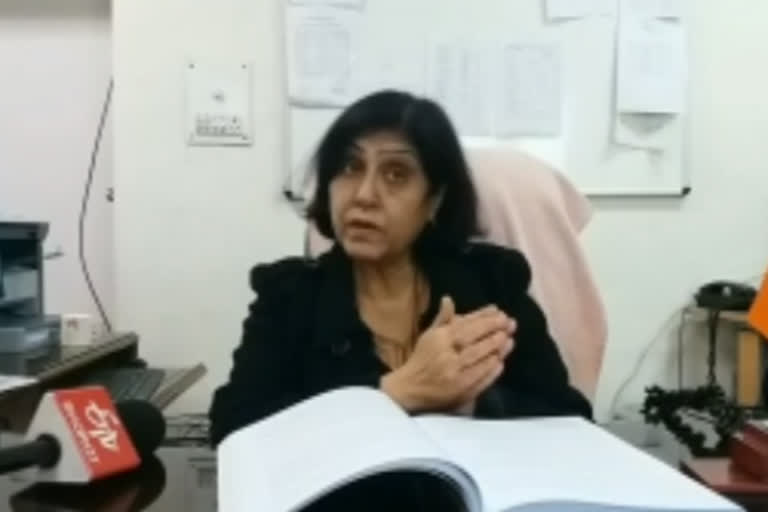New Delhi:A study conducted on menstrual hygiene practices has revealed that there is a high prevalence of myths, misconceptions and socially restrictive practices that continue to prevail among school-going adolescent girls in India.
It further said school teachers also lack proper awareness and knowledge of critical menstrual health issues which undermine the ability of their students to attain optimal menstrual hygiene management.
Dr Suneela Garg with ETV Bharat Talking about the findings, Dr Suneela Garg, Professor of Excellence, ex Sub Dean Maulana Azad Medical College said that menstrual hygiene has been a neglected public health, social and educational problem in the Indian context.
The study was a mixed-methods cross-sectional study conducted in four urban resettlement colonies and a rural area in Delhi.
The study participants included adolescent girls aged 10 to 19 years that had already experienced menarche.
Dr Garg said that a total of 1130 participants were included in the study through the house to house survey. A qualitative study also assessed perspective on menstrual hygiene management among school teachers, frontline health workers and medical officers.
Apart from interviewing girls, the study also interviewed other important stakeholders like Asha and Anganwadi workers, teachers among others.
"This study found that most adolescent girls had myths and misconceptions regarding menstrual hygiene and lack self-efficacy for adherence to the correct menstrual hygiene practices," Dr Garg said.
The study found that less than half of the girls were aware of menorrhagia before its onset. "The girls should be aware of menstruation before it occurs. Here, teachers can play an important role, but they were not empowered enough to give the information," said Dr Garg.
Reports suggest that 71 per cent adolescent girls in India remain unaware of menstruation till menarche, whereas 23 million of girls drop out of school every year when they start menstruating and many of them end up facing acute health problems.
As per data of the ministry of health and family welfare, India has around 355 million menstruating women and girls who face multilateral barriers to effective menstrual hygiene management due to various social and economic factors.
Ironically, no consultations with formal health care providers were observed during the menstruation period by 84.6 per cent participants in the study.
The study has found that 84.2 per cent of participants reported that a girl can not enter into a temple or pray during menstruation. The study found that many of the participants can't enter into the kitchen or cook food during menstruation.
"During in-depth interaction with the teachers, it emerged that male teachers were apprehensive of discussing menstrual hygiene issues with their students, and often lacked correct knowledge of menstrual hygiene practices. Therefore, training of all teachers on the subject of menstrual hygiene management is particularly required as a part of the pedagogical process to ensure the transmission of accurate information and empowerment of adolescents for menstrual health promotion," the findings of the study said adding "male teachers can be involved in sensitising adolescent boys regarding menarche and menstruation as a normal psychological process."
The study further suggested that pads under UDAAN scheme should be given free of cost to all adolescent girls up to the age of 19 years irrespective of their marital status who are not going to school.
"This should include dropouts, open school/college going or girls who have completed schooling as well," the study further suggested.
ALSO READ:Doctor, wife accused of pouring hot water on minor domestic help arrested
